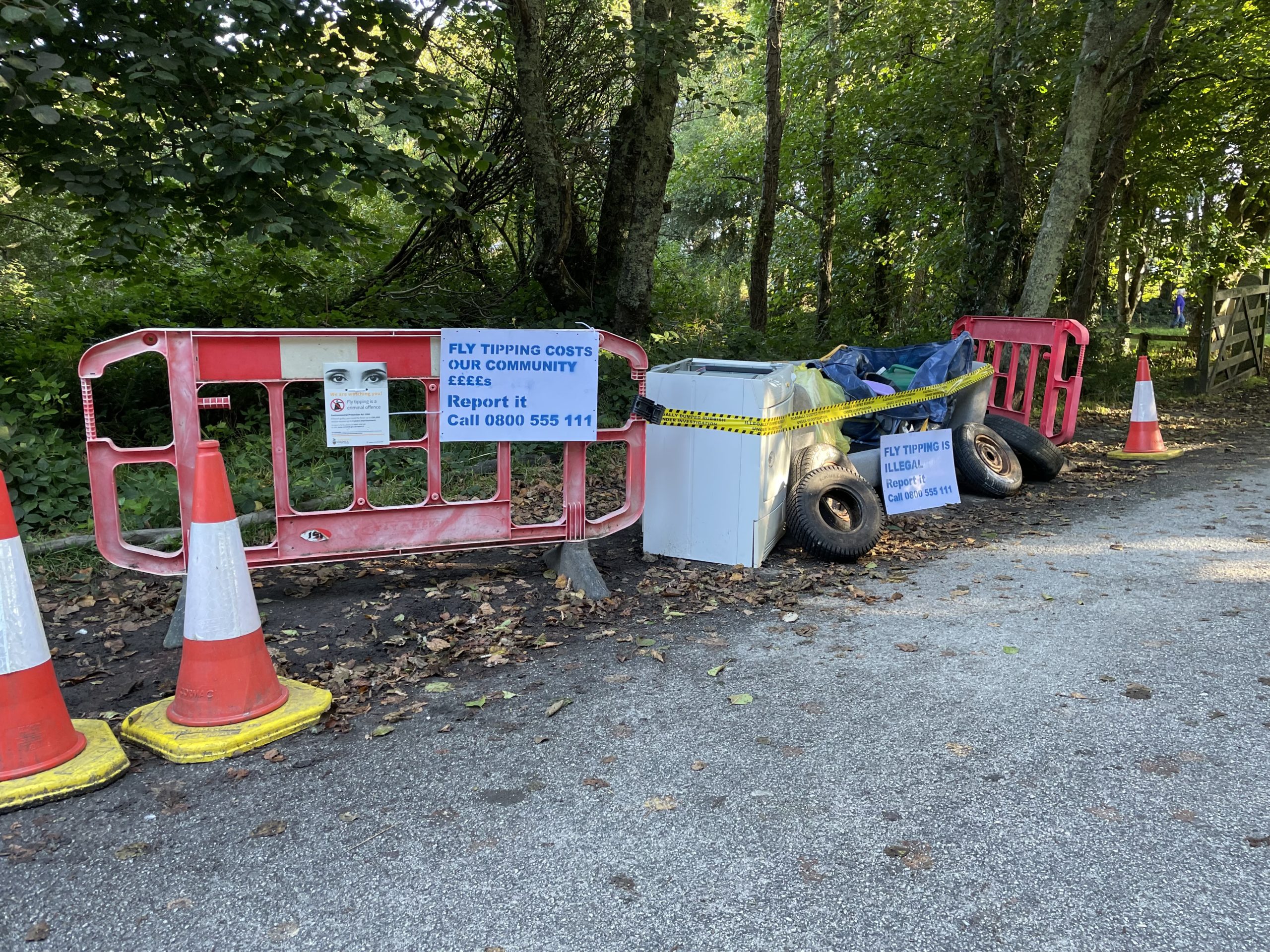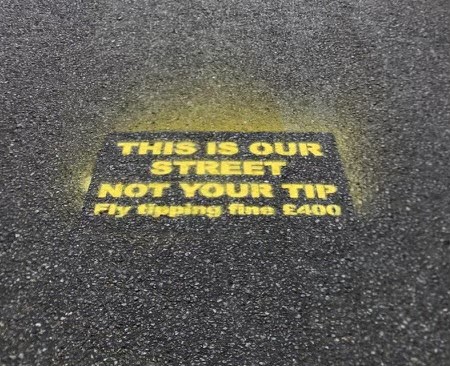Others involved in the campaign, dubbed Don’t Rubbish Illogan, include Devon and Cornwall Police, Trading Standards and Biffa.
The Agency says Cornwall council spends an estimated £250,000 each year clearing waste that has been fly-tipped around the Duchy.
Activities planned as part of the campaign include chalk stencilling at known fly-tip locations to show the areas are being monitored, promotional posters, and social media under #dontrubbishillogan.
A ‘staged fly-tip’ was also set up at Tehidy Country Park, one of Illogan’s renowned beauty spots, yesterday.
Councillor Martyn Alvey, portfolio holder for environment and climate change at Cornwall council, took the opportunity to advise residents to use legitimate companies to get rid of their waste.
In a statement, he said: “Not only does fly-tipping cost council taxpayers a lot of money to clear up, it also ruins our beautiful countryside.
“We are all responsible for making sure our rubbish is disposed of properly, and legally. Paying someone to take it away for you is often the simplest option but make sure you choose a respectable company.”
To check if a company is legitimate, Cllr Alvey advised residents to use the Buy with Confidence Scheme, which provides people with a list of businesses which have undergone a series of detailed checks by Trading Standards officers to ensure that they operate in a “legal, honest and fair way”.
Staged fly-tip
The controlled fly-tip at Tehidy Country Park is made up of bulky goods which the Environment Agency says are often see fly-tipped, such as white goods and furniture.

The bulky goods will only remain in place for a few hours, under supervision, the Agency said, before being removed.
Kevin Baker of the Environment Agency said: “It might seem counterintuitive for a campaign against waste crime to arrange for rubbish to be dumped at a beauty spot. But secluded spots in Illogan are targeted by fly-tippers up to 90 times a year. The problem may often be out of sight to many, but this is an important reminder that this sort of thing is happening and continues to have a real impact on local environments and communities.”
Mr Baker also emphasised the need to use permitted waste carriers. He said: “You would not use an unqualified tradesperson to fix your boiler or rewire your house because they might be cheaper and only accept cash. And the same applies to rubbish. Only use permitted waste carriers or run the risk of being prosecuted if your rubbish ends up fly-tipped in places like Illogan.”
Fly-tipping
The Department for Environment, Food and Rural Affairs recorded a total of 976,000 fly-tipping incidents in 2019/20, data published in February shows, up from 957,000 in 2018/19 (see letsrecycle.com story). Of these, 65% involved household waste, with 632,000 incidents recorded, a 7% increase.
The process to become a registered waste carrier under the carrier, broker and dealer (CBD) system is notorious for its lack of stringency. In May 2017, Mike Brown, managing director of Eunomia, registered his dog Oscar, a West Highland terrier who died 10 years previously, as a waste carrier without any background checks.
Earlier this month, an Environment Agency spokesperson told letsrecycle.com it currently had 305,863 active registrations under the system.









Subscribe for free